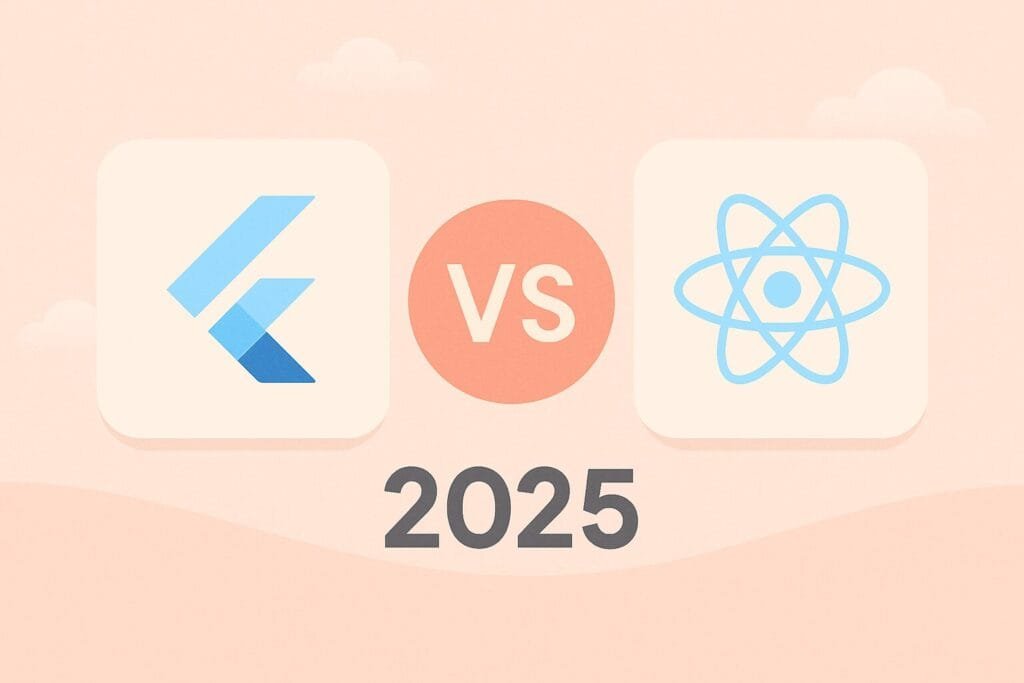As we step into 2025, mobile app development remains a competitive landscape, with Flutter and React Native leading the race for the best cross-platform framework. Both have evolved rapidly, offering powerful capabilities to build high-performance, natively compiled applications from a single codebase. But which one truly stands out in 2025?

Popularity and Community Support
React Native, developed by Facebook (now Meta), continues to enjoy a large developer community, mature ecosystem, and vast third-party libraries. However, Flutter, backed by Google, has significantly caught up and even surpassed React Native in some regions, thanks to its growing community and extensive support across mobile, web, and desktop platforms.
According to Statista, Flutter usage among developers has increased consistently over the past few years, indicating a shift in preference towards Google’s framework.
Performance
Flutter offers near-native performance thanks to its use of the Dart language and its own rendering engine. It doesn’t rely on a JavaScript bridge like React Native, which often results in better startup times and smoother animations.
React Native has made strides with tools like Hermes and Fabric, which have improved performance considerably. Still, in many benchmark tests, Flutter edges ahead in delivering consistent, high-speed UIs across platforms.
UI and Customization
Flutter shines in UI design, offering an extensive set of customizable widgets that follow Material Design and Cupertino guidelines. Developers can build expressive and highly tailored interfaces easily without needing native components.
React Native leans on native modules, which can make achieving consistent design across platforms slightly more complex. However, for projects that need deep native integration, React Native may have an edge due to its direct access to native APIs.
Development Experience
Both frameworks offer hot reload and a smooth development experience. React Native developers benefit from JavaScript’s ubiquity, while Flutter’s Dart language is gaining traction for its strong typing and performance.
Flutter’s integrated tooling with Android Studio and Visual Studio Code has become highly polished, providing robust debugging and testing tools.
Job Market and Future Outlook
In 2025, demand for Flutter developers has grown significantly, especially for startups and companies looking to target mobile, desktop, and web platforms with a single codebase. Meanwhile, React Native still dominates in companies with existing JavaScript infrastructure.
Google’s commitment to Flutter for Fuchsia OS and future ecosystem integration signals long-term investment. Meanwhile, Meta’s future support for React Native remains strong but may be influenced by changes in business focus.
Summary Comparison Table
| Feature | Flutter | React Native |
|---|---|---|
| Language | Dart | JavaScript |
| Performance | High (no bridge) | Improved (with Hermes) |
| UI Customization | Extensive, built-in widgets | Depends on native components |
| Community | Growing fast | Mature and widespread |
| Web/Desktop Support | Yes | Limited |

